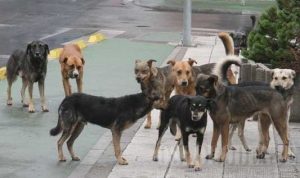Some and Any
Some refers to an indefinite or unspecified amount of something. It is more than a few or a little; but less than a lot or lots of.
We generally use some in positive sentences with plural count nouns and uncount nouns.
Examples:
● I have some French cook books.
● You have some ice-cream around your mouth.
● Mr. Plaiovic buys some apples at the market several times a week.
● Some clients are in the reception room.
Offers and Requests
Some is also used in offers and requests.
● Would you like some chocolate cake? —> No thanks. Could we have some custard pie?
● May I have some turnips please? —> Sure. How much would you like?
● Would you like some salt and pepper? —> Yes, a little, please.
Any
We use any in negative sentences and questions, with plural count and uncount nouns.
● There aren’t any lemons on this tree.
● Our uncle and aunt don’t have any children.
● We haven’t got any money.
● Are there any foreigners in this town? —> Yes, there are some British and French retirees.
● Does your friend have any flour? —> No, she doesn’t have any.
● Is there any tea or coffee in the cupboard? —> There is a little.
● Why doesn’t Steve have any friends? —> Because he doesn’t speak the local language.
How would you or someone respond?
● You hear a knock on the door. It’s your neighbor. What does he or she say to you?
● Tom is shopping at a small store. What does he ask the store clerk?



Answer the questions or respond to the sentences. Say why and give examples.
Some
1. Every year I celebrate my birthday with some friends. Yes or no?
2. Some residents in my city are nice and friendly; others are cold and unfriendly. Do you agree?
3. Some of my classmates studied classical literature at university. Is this true or false?
4. Some people are very successful, but most people are average workers. Do you agree?
5. My company (or school) has some expensive equipment. Is this right or wrong? What kind of equipment does your company have?
6. Some of my friends or colleagues have a large collection (of books, coins, clothes, comics, CDs, DVDs). Is this correct or incorrect?
7. There are some computer experts in my company, school or neighborhood who can fix any computer problem. True or false? What do they do?



Any
8. Are there any American, Bangladeshi, Brazilian, Chinese, Colombian, Greek, Indian, Italian, Japanese, Korean, Lebanese, Mexican, Moroccan, Persian, Russian, Thai, Turkish or Vietnamese restaurants in your city?
9. Are there any stray (homeless or street) cats and dogs on the streets? Are there any squirrels and birds in the park? Is homelessness a problem? Are there any homeless people?
10. I know lots of people who don’t have any free time. Yes or no?
11. A few people don’t have any relatives or family members. Is this right or wrong? What does he or she do?
12. Some people don’t have any friends and live completely alone.
13. Are there any youth clubs, boy scouts, girl scouts or other organizations for young people in your community?
14. Do you or your friends have any foreign friends or colleagues? Are there any foreigners in your school, company or neighborhood? Who are they?



